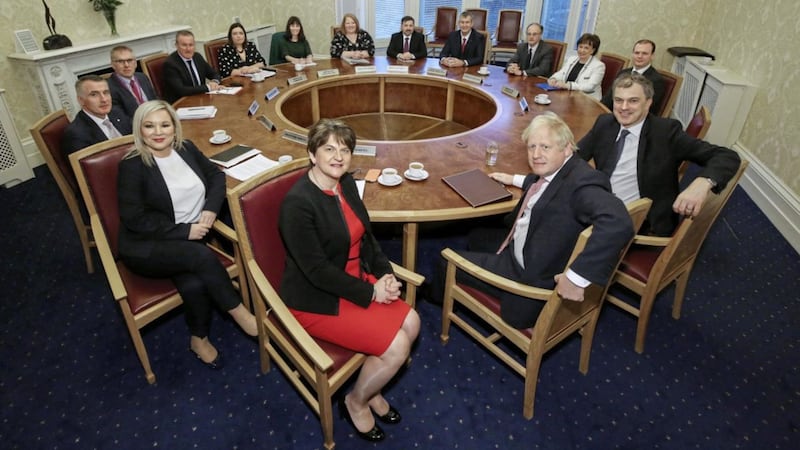WE live in an increasingly unequal society.
While one Belfast hotel is offering Christmas Day lunch at £265 per person (£135 per child under 12), a west Belfast food bank is helping about 300 families a week to stave off hunger.
In Derry and Strabane, 27 per cent of people are in poverty. In the year up to March, 31,000 food parcels were given to children here (echoes of the underdeveloped world) and about 350,00 people were in fuel poverty before recent price rises in gas and electricity.
For thousands, the choice this Christmas will be between heating or eating and God help anyone who becomes injured or ill. We had appalling hospital waiting lists before Covid and now our health service is broken. We live in a fractured society, which begs the question: how did we ever get here?
The answer is simple: our politicians brought us. Responsibility lies with them, their choices, and their politics. The buck stops with Stormont.
In 1969 when the Troubles began we lived in a welfare state, unequal in many respects. But it had a decent health service, free higher education, state housing (although discriminately allocated) and state-owned public services, including gas and electricity.
By 1972, the civil rights demands for state reform were largely achieved, including ending the Special Powers Act, establishing the Housing Executive and local government reorganisation.
By that time, the IRA was three years into its 25-year war. It bombed civilian targets including industry, tourism, retail, transport, hospitality - and the headquarters of the Housing Executive.
Its “Brits Out” policy had no social or economic objectives, so when Thatcher came to power in 1979, her erosion of the welfare state passed largely unnoticed.
When the futile war ended, no-one demanded investment for re-building, or for health, welfare or education. No-one asked if we should revive the welfare state, or maintain Thatcherism. Instead our parties grabbed power and said we should be grateful for peace.
They agreed to union with Britain, allowing rule by successive Tory governments. Today they complain about Tory austerity, but they all accepted British rule in return for regional power.
Since then, Stormont’s Thatcherism has ravaged our society. It stopped the Housing Executive building homes in 2002. With average house prices now £200,000, home ownership is denied to many. An estimated 45,000 are waiting for social housing. At the present rate of building, it will take 34 years to meet that demand.
For others, it means a life-long mortgage, ultimately sourced from international financial institutions, often owned by those who can afford a £265 Christmas lunch.
The Northern Ireland Act 1998, which created Stormont, included an Executive strategy for tackling “poverty, social exclusion and patterns of deprivation”. We are still waiting for it after 23 years of flag waving. Only a primitive society would prioritise a piece of coloured cloth over a hungry child.
After 25 years of violence and another 25 of sectarian argument, we have very sick people in our hospital emergency departments. They wait for medical help outside in ambulances and inside on trolleys, chairs and even on the floor.
Would anyone from SF or the SDLP like to visit them and say, “Fancy a conversation about a united Ireland?” Would anyone from the DUP like to assure a hungry family by saying, “Don’t worry, we are fighting to protect the union”?
Covid is not our only virus. Stormont is a super-spreader of the virus of sectarianism, which kills off normal politics, every day of every bleak and dispiriting week. (Robin Swann is a rare ministerial exception.)
It is time for a conversation about the scandalous state of our society and the shabby self-interest and sectarian politics which have brought us here.
But don’t expect Stormont’s five main parties to participate. They use fluency in flags to avoid discussing their failure to develop a fair and decent society and in doing so, they are laying the foundation for further inequality.








